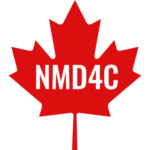
2024 Award Recipients
Early Career Biomedical Researcher of the Year
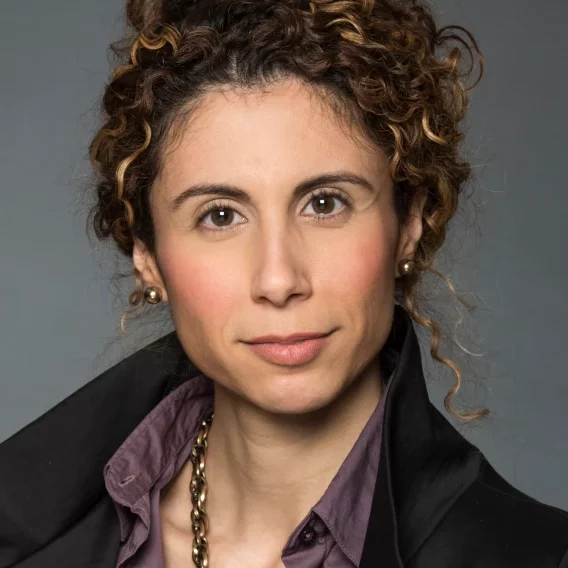
Dr. Mireille Khacho
Assistant Professor, Department of Biochemistry, Microbiology & Immunology, Faculty of Medicine, University of Ottawa
Dr. Mireille Khacho is an Assistant Professor in the Department of Biochemistry, Microbiology and Immunology at the University of Ottawa, whose research focuses on the role of mitochondrial function and dynamics in key cellular processes that regulate stem cell function in tissue homeostasis, elucidate the fundamental behavior of mitochondria in muscle stem cells, and the underlying role of mitochondrial dysfunction in degenerative disorders.
As an Early Career Researcher, Dr. Khacho has established herself as an emerging international leader in neuromuscular research while holding a Tier 2 Canada Research Chair in Mitochondrial Dynamics and Regenerative Medicine. Her excellence and impact have been recognized through attracting over $2.7 million in peer-reviewed funding, publishing as lead or corresponding author in prestigious journals such as Cell Stem Cell, and obtaining significant recognitions including the J.P. Bickell Award and the Stem Cell Network Young Investigator Award.
Since 2018, Dr. Khacho has published 13 articles and invited reviews in peer-reviewed journals, and her outreach and knowledge mobilization efforts are evidenced by having presented at 38 international and national conferences. She is a dedicated mentor and champion for the next generation of researchers, having mentored a total of 37 trainees who have been highly successful in securing numerous scholarships, fellowships, and recognition with numerous abstract and presentation awards.
Major Achievements
Dr. Khacho uncovered that mitochondrial dynamics play an instructive role in the regulation of adult muscle stem cell quiescence and their ability to activate, upon muscle injury or damage, to commence the process of muscle regeneration. Her work showed that dysregulation of mitochondrial dynamics causes severe defects in adult muscle stem cells and completely impairs muscle regeneration. The importance of this work is underscored by the fact that it was featured on the cover of Cell Stem Cell and highlighted in a Preview in Cell Stem Cell.
Dr. Khacho uncovered a novel and fundamental role for mitochondrial dynamics in the regulation of stem cell metabolism, self-renewal capacity and fate decisions. This Cell Stem Cell publication was the first to reveal that mitochondria in stem cells can communicate with the nucleus to control gene expression, thereby regulating the expression of key genes that modulate cell fate decisions. This research also demonstrated that dysregulated mitochondrial dynamics and function has a profound impact on stem cells and the differentiation process during development and in adult tissue regeneration. This work has important implications for aging and regenerative medicine and was recommended by Faculty of 1000 as being of special significance in its field
Dr. Khacho demonstrated that dysregulated mitochondrial function and dynamics has a profound impact on stem cells during development and in adult tissue regulation. She showed for the first time that loss of proper mitochondrial function in neural stem cells, either during development or in an adult context, is an etiological factor leading to neurodevelopmental defects and cognitive dysfunction. Within the context of neural stem cells, her work uncovered that cognitive decline during aging or in neurodegenerative disease may be due to dysfunctional mitochondria in the neural stem cell pool. These findings have major implications in understanding not only aging and degenerative diseases but also the basic mechanisms of adult stem cell maintenance.
Early Career Publication of the Year
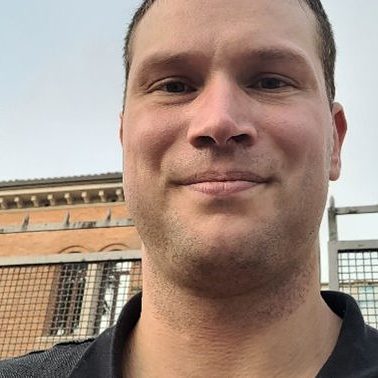
Dr. Jean-Philippe Leduc Gaudet
Assistant Professor in the Medical Biology Department at Université du Québec à Trois-Rivières (UQTR), Université du Québec à Trois-Rivières
MYTHO is a novel regulator of skeletal muscle autophagy and integrity, published in the journal Nature Communications.
Dr. Jean-Philippe Leduc Gaudet is an Assistant Professor in the Medical Biology Department at Université du Québec à Trois-Rivières (UQTR), establishing his new laboratory there since June 2023. Dr. Leduc Gaudet completed his BSc and MSc in Kinesiology at the Université du Québec à Montréal (UQAM) before going on to complete PhD studies in Experimental Medicine at McGill University, and a postdoctoral fellowship at the Veneto Institute of Molecular Medicine and at the RI-MUHC. Dr. Leduc Gaudet’s research is focused on the various signaling pathways that control protein breakdown and protein synthesis, with a particular emphasis on the discovery and characterization of novel genes that are involved in muscular diseases. Dr. Leduc Gaudet’s publication was featured on the Nature Communications Editors’ Highlights webpage, and he was recently invited to publish a highlight of this work in the prestigious journal Autophagy.
Paper Highlights
The results of the publication “MYTHO is a novel regulator of skeletal muscle autophagy and integrity” suggests that dysregulation of Mytho expression may contribute to human muscular diseases, opening new paths to understanding the fundamental importance of proteolytic signaling in regulating skeletal muscle health.
Autophagy is a multistep process responsible for the removal and recycling of superfluous or dysfunctional cell components, and it is essential for regulating skeletal muscle health. Emerging evidence shows that when autophagy is not functioning properly due to physiopathological conditions, such as neuromuscular diseases, skeletal muscle will develop weakness, atrophy, degeneration, and fibrosis. Despite the significant progress made by scientists in quantifying the functional importance of autophagy in the regulation of skeletal muscle mass and function, important gaps remain in understanding the molecular machinery that regulates autophagy in skeletal muscles.
This paper identifies a novel FoxO-dependent Riken gene, d230025d16Rik, named Macroautophagy and YouTH Optimizer (MYTHO). The authors demonstrate that Mytho is a critical regulator of autophagy and skeletal muscle integrity in vivo, and that its knockdown protects against muscle atrophy in a wide range of acute catabolic conditions. Prolonged silencing, however, causes severe myopathy. In other experiments, the paper highlights that muscle biopsy samples of human patients diagnosed with myotonic dystrophy type 1 (DM1) display reduced Mytho expression, activation of the mTORC1 signaling pathway and impaired autophagy.
2023
Early Career Biomedical Researcher of the Year
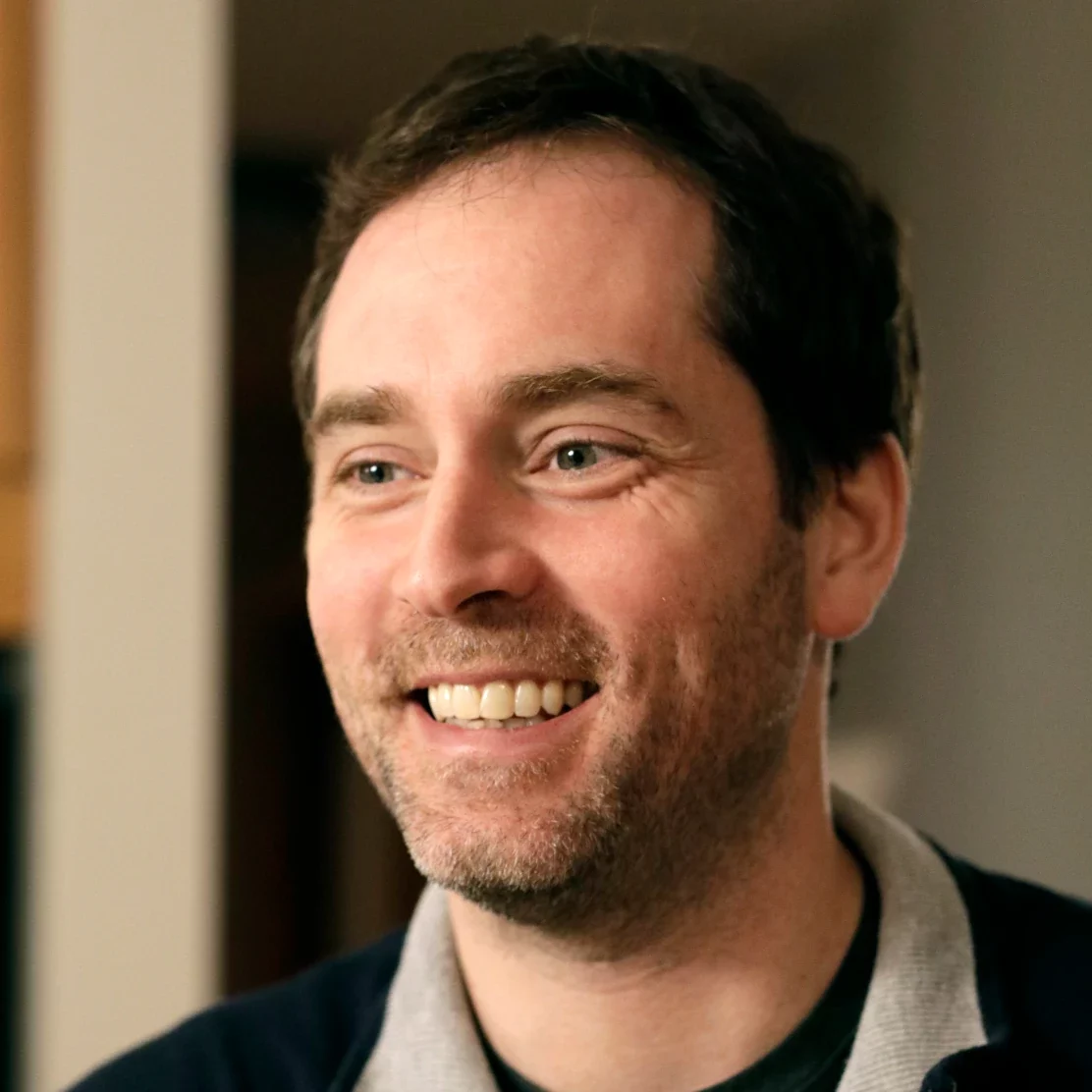
Dr. Nicolas Dumont
Associate professor, Rehabilitation department, University of Montreal
Principal Investigator, Musculoskeletal health research axis, Sainte-Justine Hospital research center
Dr. Nicolas Dumont obtained his PhD at the Université Laval where he studied the regulatory network between inflammatory cells and skeletal muscles. He did his post-doctoral training at the Ottawa Hospital Research Institute in Dr. Michael Rudnicki’s lab, where he studied muscle stem cell defects in Duchenne Muscular Dystrophy. Dr. Dumont became an assistant professor at the Université de Montréal in 2016, and he established his lab at the Sainte-Justine hospital research center. His research program is divided in 3 axes: 1) characterizing the intrinsic mechanisms regulating muscle stem cell fate decision during myogenesis, 2) characterizing the impact of rare genetic variants on muscle stem cell function, and 3) investigating novel therapeutic avenues targeting defective muscle stem cells to mitigate muscular dystrophies. Dr. Dumont holds a FRQS Junior-2 award, and his lab is funded by grants from the CIHR, NSERC, ThéCell network, Stem Cell Network, Orphan disease center, AFM-Telethon, and Muscular Dystrophy Canada.
Major Achievements
Dr. Nicolas Dumont has developed an innovative research program that is focused on the comprehension of muscle stem cell defects in different muscular diseases, based on his paradigm-shifting discovery showing that dystrophin-deficient muscle stem cells are intrinsically defective in Duchenne Muscular Dystrophy (DMD).
He recently showed that these defective cells can be targeted with therapeutic compounds (Resolvins) to restore their regenerative potential, identifying a novel therapeutic approach for DMD that is more potent than the current standard-of-care treatment as a corresponding author of “Resolvin-D2 targets myogenic cells and improves muscle regeneration in Duchenne Muscular Dystrophy” in Nature Communications.
Dr. Dumont has expanded his expertise to neuromuscular diseases beyond DMD; in collaboration with an international team of experts, he identified a new human myopathy (named MYOSCO) that affects muscle stem cells, identifying a new class of human myopathies specifically affecting muscle stem cells as corresponding author of “Biallelic variants in the transcription factor PAX7 are a new genetic cause of Myopathy” in Genetics in Medicine.
Moreover, in collaboration with Dr Elise Duchesne, he also identified that muscle stem cells become prematurely senescent in myotonic dystrophy type 1, and that these defective cells can be eliminated by specific drugs to restore muscle regeneration as a corresponding author of " Clearance of defective muscle stem cells by senolytics reduces the expression of senescence-associated secretory phenotype and restores myogenesis in myotonic dystrophy type 1” in BiorXiv.
Early Career Clinical Researcher of the Year
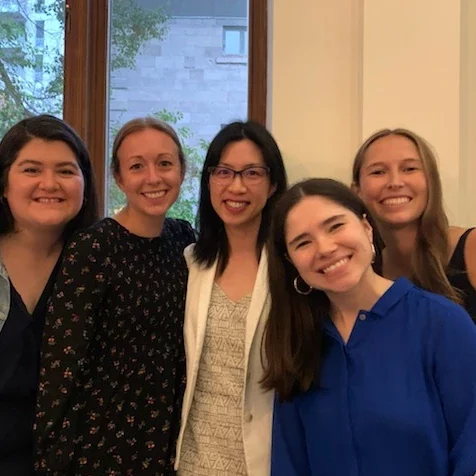
Dr. Cam-Tu Émilie Nguyen
Neurologist, Assistant Professor, CHU Sainte-Justine, Université de Montréal
Dr. Cam-Tu Émilie Nguyen is a pediatric neurologist specialized in neuromuscular disorders at CHU Sainte-Justine in Montreal. Dr. Nguyen is the medical director of the Neuromuscular clinic at Marie Enfant Rehabilitation Centre of CHU Sainte-Justine. Dr. Nguyen completed a fellowship in EMG and neuromuscular disorders at McGill University, the London Health Sciences Centre under Dr. Craig Campbell’s supervision, and The Hospital for Sick Children (SickKids). She received an EMG Diploma from the Canadian Society of Clinical Neurophysiologists (CSCN) and was the recipient of the CSCN Fellowship in Neuromuscular Medicine & Electromyography in 2015.
Major Achievements
As the Medical Director of the Neuromuscular clinic at Centre de réadaptation Marie Enfant of CHU Sainte-Justine, Dr. Nguyen holds a prominent leadership role in implementing genetic therapies for children, and played a pivotal role in the construction of the nusinersen and the onasemnogene abeparvovec administration programs for spinal muscular atrophy patients.
Dr. Nguyen’s contribution to the neuromuscular field also include clinical characterization and new treatment approach of rare neuromuscular disorders, for which she was awarded best Poster at ICNMD2018 and a WMS membership award at WMS 2019.
Dr. Nguyen’s outstanding teaching and media communication skills saw her present in over 10 television, newspaper and radio interviews and receive a teaching award in 2022 as residents from the Université de Montréal Pediatric Neurology program unanimously voted her the Best Professor of the program!
Early Career Publication of the Year
Babaeijandaghi F, Cheng R, Kajabadi N, Soliman H, Chang CK, Smandych J, Tung LW, Long R, Ghassemi A, Rossi FMV. Metabolic reprogramming of skeletal muscle by resident macrophages points to CSF1R inhibitors as muscular dystrophy therapeutics. Sci Transl Med. 2022 Jun 29;14(651). doi: 10.1126
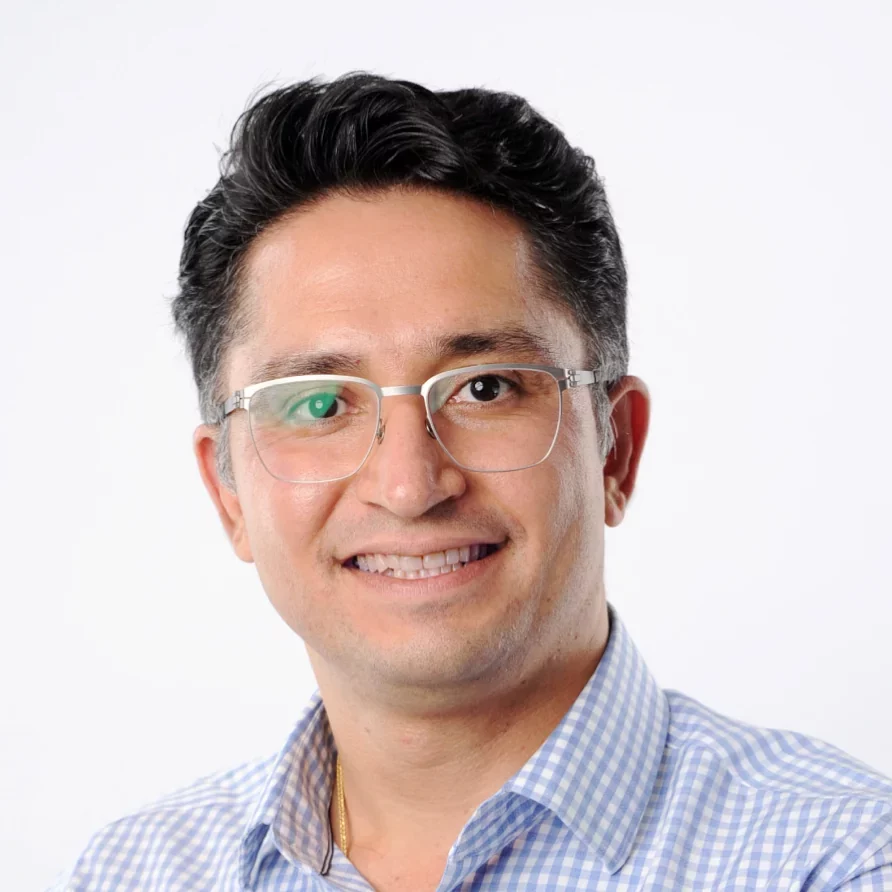
Dr. Babaeijandaghi received his MD from Tehran University of Medical Sciences before achieving his PhD in Experimental Medicine from the University of British Columbia. During his PhD, he worked under supervision of Dr. Fabio Rossi to study the role of stromal cells including resident macrophages and fibro-adipogenic progenitors in muscle regeneration and fibrosis. Currently, he is a scientist at Altos Labs in San Diego, California focusing on muscle aging and rejuvenation.
“Metabolic reprogramming of skeletal muscle by resident macrophages points to CSF1R inhibitors as muscular dystrophy therapeutics” is published in Science Translational Medicine. Dr. Babaeijandaghi's work characterizes resident macrophages in skeletal muscle and identifies their role in acute and chronic damage, ultimately identifying a novel therapeutic strategy for DMD. His discovery that a drug interfering with muscle-resident macrophages also leads to reprogramming of myofibres to a damage-resistant phenotype opens a new path to manage the disease.
Honorable Mention
Resolvin-D2 targets myogenic cells and improves muscle regeneration in Duchenne muscular dystrophy
Dort J, Orfi Z, Fabre P, Molina T, Conte TC, Greffard K, Pellerito O, Bilodeau JF, Dumont NA. Resolvin-D2 targets myogenic cells and improves muscle regeneration in Duchenne muscular dystrophy. Nat Commun. 2021 Oct 29;12(1):6264. doi: 10.1038/s41467-021-26516-0.
